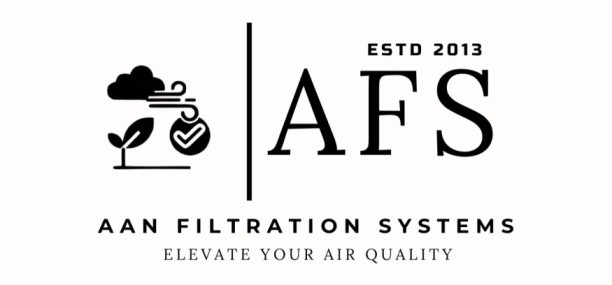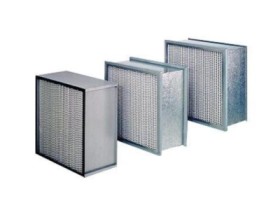In today’s world, maintaining clean and healthy air is more important than ever, especially in environments where air quality directly impacts health and safety. High-Efficiency Particulate Air (HEPA) filters have become the gold standard in air filtration, known for their ability to trap even the smallest particles. But not all HEPA filters are created equal. In this blog, we will explore the different types of HEPA filters, their unique features and the specific applications where they are most effective.
What is a HEPA Filter?
A HEPA filter is designed to capture particles as small as 0.3 microns with an efficiency of 99.97% or higher. This makes them incredibly effective at removing contaminants such as dust, pollen, mold, bacteria and even some viruses from the air. HEPA filters are composed of a dense mat of fibers that trap particles through mechanisms like interception, impaction and diffusion.
Types of HEPA Filters
- Standard HEPA Filters
Standard HEPA filters are the most commonly used type, offering high efficiency in capturing airborne particles. They are widely used in residential and commercial air purification systems as well as in medical facilities.
Applications:
- Residential Air Purifiers: Ideal for homeowners looking to improve indoor air quality and reduce allergens.
- Commercial HVAC Systems: Used in office buildings and public spaces to ensure a clean and healthy environment.
- Healthcare Facilities: Essential in hospitals and clinics to maintain sterile air in operating rooms and patient care areas.
- Mini Pleat HEPA Filters
Mini Pleat HEPA filters are designed with tightly packed pleats, allowing for a larger surface area within a compact frame. This design enhances the filter's efficiency and extends its lifespan while maintaining a low-pressure drop.
Applications:
- Cleanrooms: Critical in environments that require extremely low levels of airborne particles, such as semiconductor manufacturing and pharmaceutical production.
- Laboratories: Used to maintain contamination-free air in research facilities and biosafety labs.
- Data Centers: Protect sensitive equipment from airborne contaminants that can cause damage or interference.
- Mini Pleat Gel Seal HEPA Filters
The Mini Pleat Gel Seal HEPA filter is an advanced version that features a gel sealant along the edges, ensuring an airtight fit within the filter housing. This prevents any air bypass, making these filters ideal for ultra-clean environments.
Applications:
- Pharmaceutical Manufacturing: Essential in preventing cross-contamination during drug production.
- Biotechnology Facilities: Used in environments where maintaining an aseptic condition is crucial.
- Critical Containment Areas: Ideal for use in containment cabinets and enclosures where leak prevention is vital.
- High-Temperature HEPA Filters
High-temperature HEPA filters are designed to withstand extreme temperatures without compromising their filtration efficiency. These filters are built using materials that resist degradation under high heat conditions.
Applications:
- Oven and Furnace Filters: Used in industrial ovens and furnaces where air purity must be maintained at high operating temperatures.
- Aerospace: Essential in aerospace manufacturing where components are exposed to high temperatures during production.
- Sterilization Equipment: Used in autoclaves and other sterilization equipment to ensure air purity during high-heat processes.
How to Choose the Right HEPA Filter for Your Needs
Selecting the appropriate HEPA filter depends on various factors, including the specific contaminants you need to remove, the environment in which the filter will be used and the temperature and humidity conditions. Here are some considerations to keep in mind:
- Contaminant Type: Identify the particles you need to filter out, whether it’s dust, allergens, bacteria or chemical fumes.
- Environmental Conditions: Consider the operating environment, including temperature and humidity levels, to ensure the filter can perform optimally.
- Pressure Drop: Evaluate the pressure drop across the filter, as higher efficiency filters may require more powerful air handling systems.
Maintenance and Longevity
HEPA filters are highly efficient, but their performance can degrade over time as they capture more particles. Regular maintenance and replacement are crucial to ensure continuous high performance. Here are some tips:
- Regular Inspections: Conduct routine checks to assess the filter’s condition and identify any signs of wear or clogging.
- Timely Replacement: Follow the manufacturer’s guidelines for replacement intervals, which typically range from 6 months to a year, depending on usage.
- Proper Installation: Ensure the filter is correctly installed, with no gaps or leaks, to maximize its effectiveness.
HEPA filters are indispensable in maintaining clean and safe air in a variety of settings, from homes to highly controlled industrial environments. Understanding the different types of HEPA filters and their applications can help you choose the right filter to meet your specific needs. Whether you require a standard HEPA filter for everyday use or a specialized Mini Pleat Gel Seal HEPA filter for a critical environment, the right choice can significantly impact air quality and overall health.
At Aan Filtration System, we offer a comprehensive range of HEPA filters tailored to meet the diverse needs of our clients. Our expertise in air filtration ensures that you receive the most effective solution for your application. Contact us today to learn more about our products and how we can help you achieve the highest standards of air quality.

